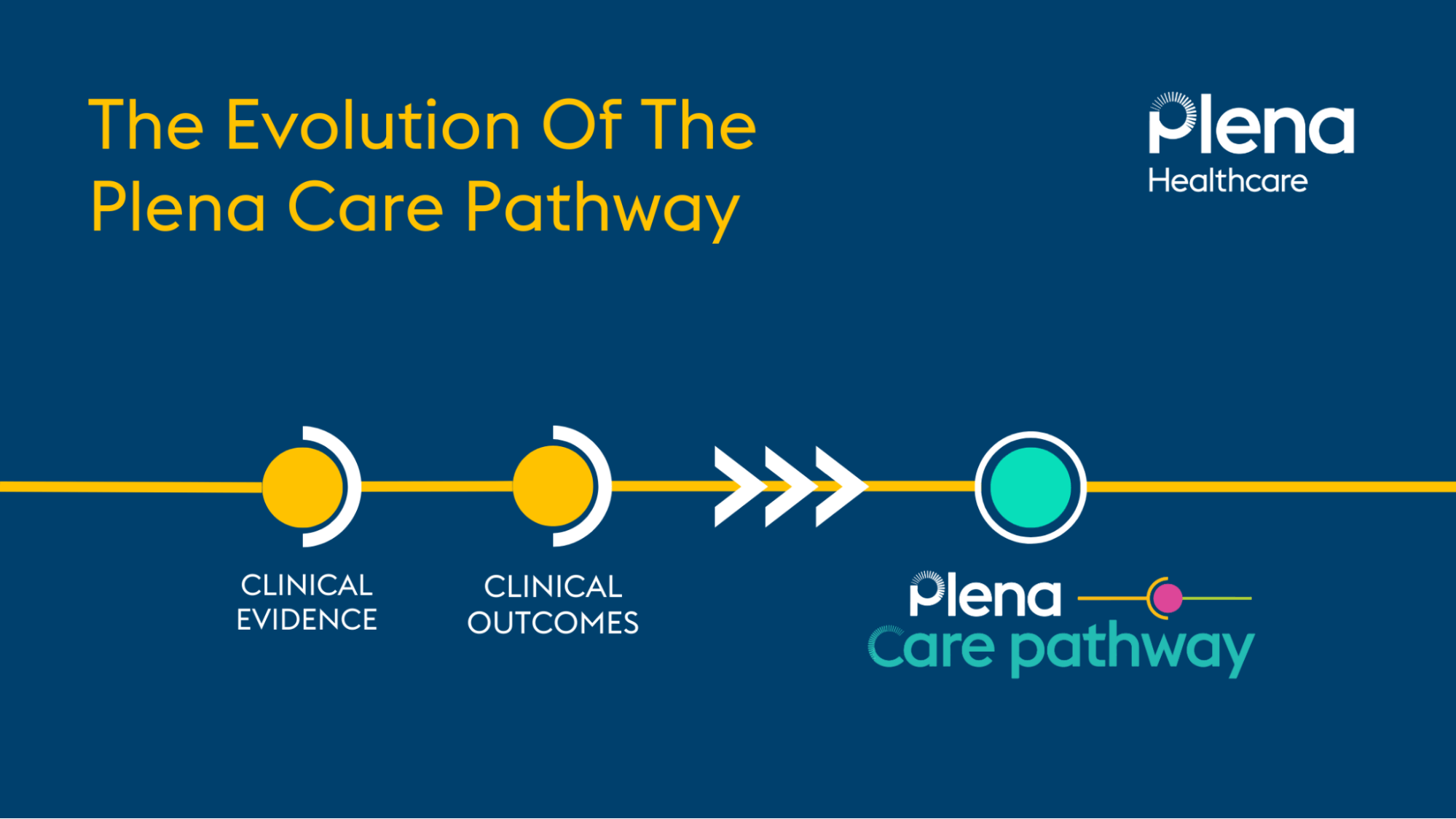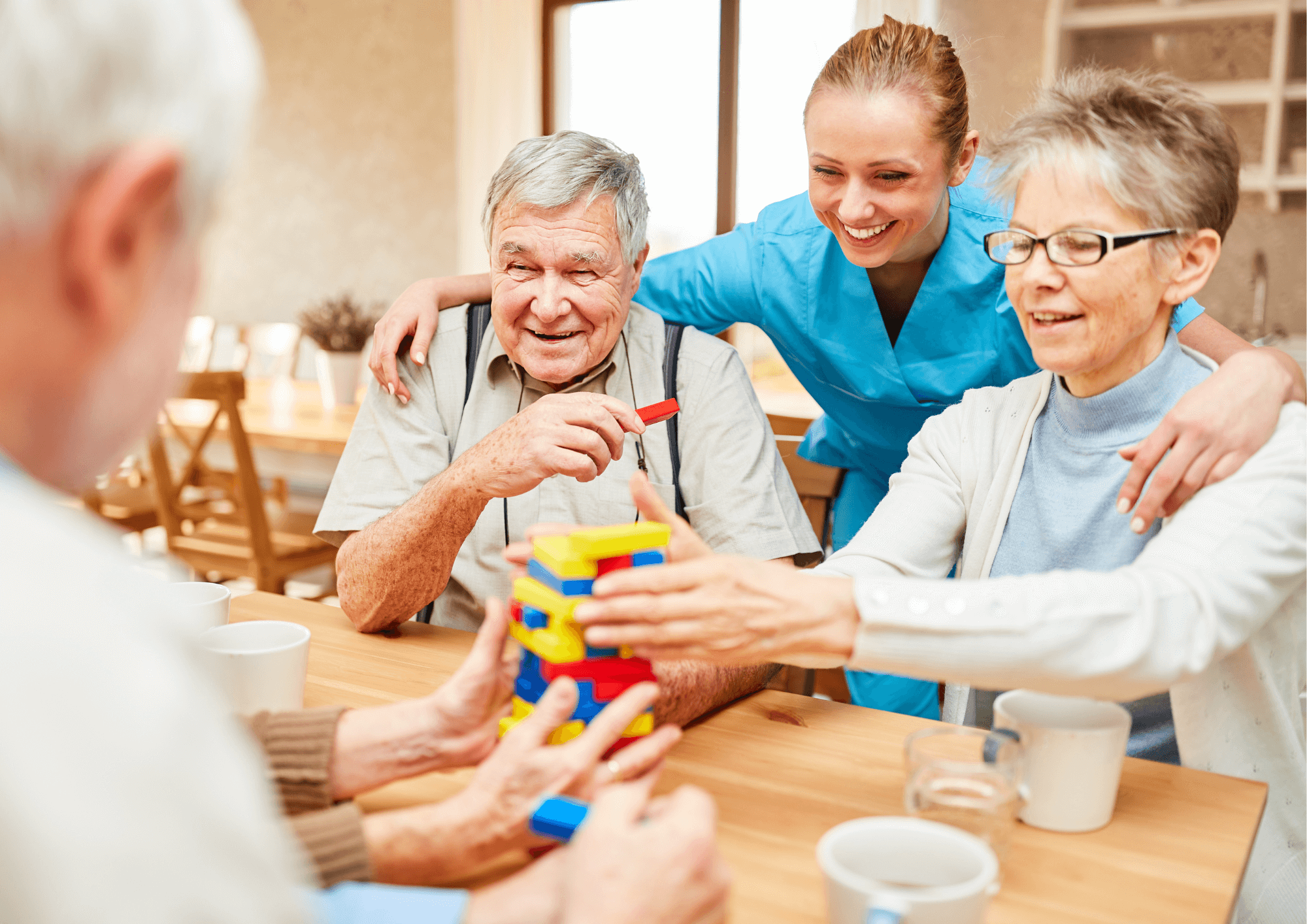The Plena Care Pathway is a significant innovation in the way that allied health services are delivered to ageing Australians living within residential aged care facilities. While the pathway was developed to address allied health service delivery under the new AN-ACC funding model (in place from 1 October 2022), it is deeply rooted in and supported by evidence from clinical research and our own experience delivering allied health services within aged care facilities.
There is a significant body of evidence indicating the benefits of movement and exercise for ageing individuals. With the number of people living within residential aged care facilities expected to triple by 2050, we have a responsibility to enable and drive restorative and active ageing, through optimising individuals’ function and mobility. By achieving this, we can improve the quality of life for the individual and reduce the burden of care that falls upon family members, carers and residential aged care facilities.
Recent research from Lewis et al (2021) published in BMC Geriatrics, which included a meta analysis of 63 studies, looked at the effectiveness of reablement strategies to address physical deconditioning in older adults (greater than 65 years) living in residential aged care. Outcomes including physical function, quality of life and mental health were included, as well as the feasibility of interventions. While the interventions in each study varied, it found that 60% of studies measuring physical function and 40% of studies measuring quality of life, reported significant improvements.
Pain management services underpinned allied health services delivered to residents of aged care under the previous funding model, ACFI, however these services were neither evidence based or tailored to the individuals needs. Under AN-ACC and the Plena Care Pathway, we have the opportunity to use evidenced based pain management therapies that meet the needs of the individual.
Further research from the University of Sydney and the University Centre for Rural Healthcare, set out to test whether tailored, evidence-based exercise programs could be:
- effective in the prevention of falls in aged care residents,
- result in improvements to secondary outcomes including quality of life, cognition, mobility and wellbeing, and
- delivered in a cost effective way.
An Australian Study published in 2018 found that the program significantly reduced the rate of falls and improved physical performance in residents of aged care and opened the door for discussions around improving clinical practice and health outcomes for residents.
The program was named SUNBEAM, and Plena Healthcare was involved in delivering the program, partnering with Primary Health Networks across Victoria and New South Wales through 2021 and 2022.
The SUNBEAM program gave Plena clinicians the opportunity to reinvigorate provision of allied health care through active engagement in therapy with residents, placing focus on the specific functional goals of each participant, while building knowledge around how such a model could be delivered in a cost effective and commercially viable manner.
Plena Healthcare clinicians worked with each participant individually to design a care plan and exercise program based on the SUNBEAM model. Programs can include body weight exercises, exercise bands, light weights, and balance activities in sitting and standing positions.
Participants were regularly assessed using functional outcome measures including the SPPB (Short Physical Performance Battery), testing walking speed, balance, and ability to stand from a chair without assistance.
To date, more than 700 participants across 28 residential aged care facilities serviced by Plena Healthcare in Victoria and New South Wales have participated in SUNBEAM.
Significant improvements were seen in walking speeds, balance and a participant’s ability to stand from a chair without assistance—with 61%, 78% and 41% increases in SPPB scores respectively.
Survey data showed improved participant mood, social engagement and self-confidence in day-to-day activities as well as a growing passion for exercise.
While the focus was predominantly on resident outcomes, the flow on effects from the SUNBEAM active reablement program have reduced the care burden for care staff and nurses. Some participants are now able to transfer in and out of bed with less hands-on assistance, while others can walk to and from their bathroom without risk of falling. Residents who are more confident in doing their own activities of daily living (ADLs) means less physical input from staff and lowers manual handling injury risks.
Our experience delivering allied health services, our commitment to understanding the research and evidence and the evolution of the industry with the introduction of the AN-ACC funding model, provided the solid foundation required for the development of an industry leading, evidence based allied health services model – known as the Plena Care Pathway.



